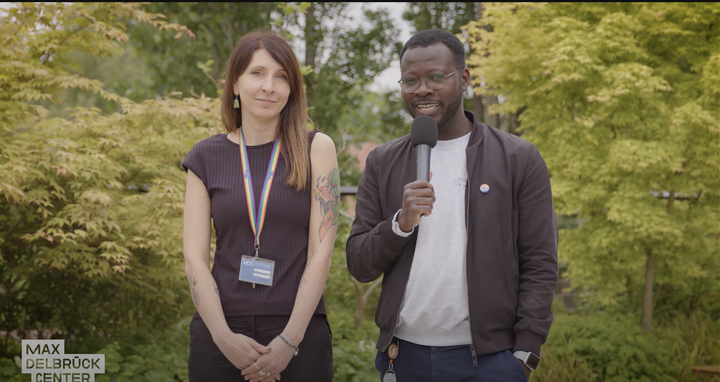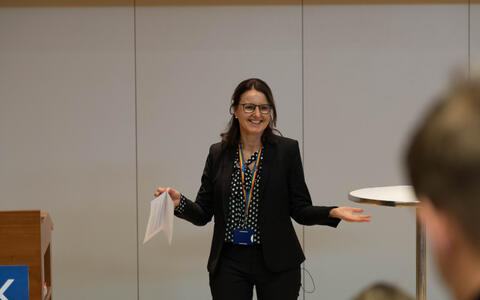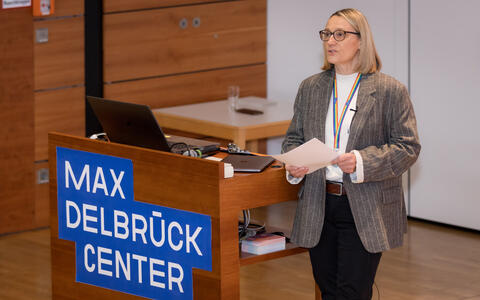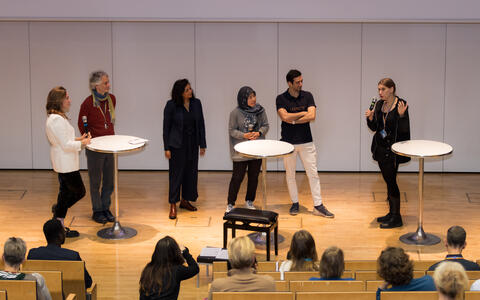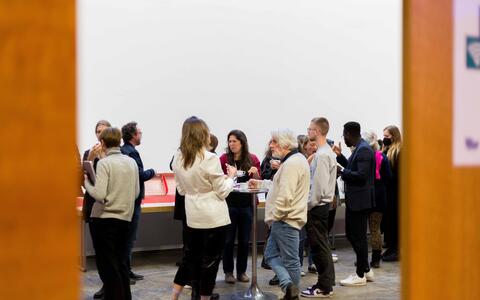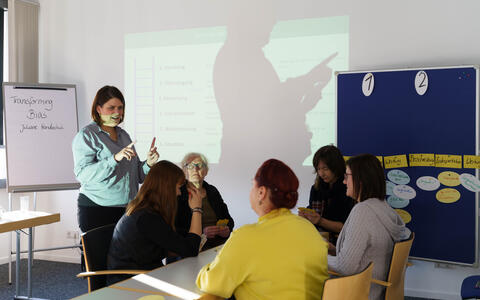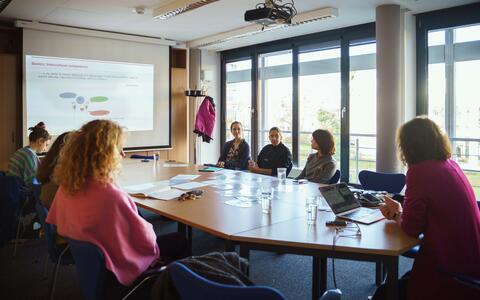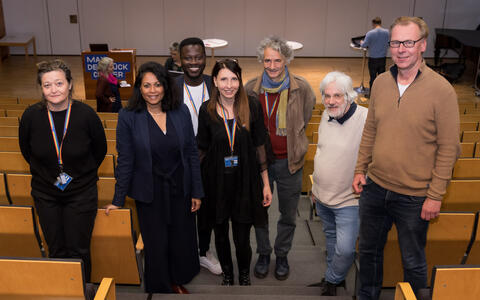Kicking off the conversation on DEI in science
What inspired Diversity, Equity, and Inclusion Week, which took place November 13–17?
Dr Sanja Drakulic — Diversity, equity, and inclusion are terms that are not completely new to us here at the Max Delbrück Center. We’ve had some previous projects, for example the LIBRA Project, which dealt with gender equality in science. But there was obviously some work that still needed to be done. Diversity, equity, and inclusion cannot stay simple buzzwords that look good on our proposals and reports, we have to bring these visions to life. Creating a safe space, where everyone feels seen, welcome, and cherished, where everyone can flourish, grow, and reach their full potential, is not only our mission, but a daily task.
I came to Germany over ten years ago from Croatia to obtain my PhD in biology. My personal experiences as a woman, and especially, as a member of the international community, gave me an insight to challenges that can be faced by individuals from diverse backgrounds. This sparked my commitment to addressing such issues and contributing to a more inclusive and equitable work environment.
How does a diverse and inclusive research community benefit science?
Dr Jean-Yves Tano — If you have diversity of thought, diversity of people, you get different perspectives and approaches. We get innovation, which has been proven over and over again in studies. Teams get a broader skillset and expertise. The Max Delbrück Center already has a good basis for that because we are working on many different biomedical topics. Regarding our research community, I think there are a couple of things that could be improved.
The Max Delbrück Center is a German institution and therefore we have a higher number of European employees. Part of this initiative is to increase the visibility and inclusion of underrepresented diversity dimensions through our recruiting processes. In addition, we hope to increase cultural competence in research labs and among administrative staff, which would lead to further inclusion and respect for all voices.
What are the key challenges that the field of science faces in achieving these goals?
Tano — I would like to mention two important aspects. During our Kickoff event on November 13, we had a keynote speaker, Dr. Roshni Mooneeram, as well as a PhD candidate, Friederike Gutmann, who gave some insights into this topic. Friederike’s discussion was about allyship and how everybody who is working at the center and wants to further inclusivity needs allies who are supporting these ideas and are going to help.
Roshni mentioned that there are four levels of DEI within companies and institutions, and most get stuck at the level of compliance. That means that they are just making sure that everything that governments or grants are demanding is done. But she says that we need to move towards something that is more like “leader-led initiatives,” where the implementation would be fully integrated in all of our processes — every time we want to recruit, every time we are thinking of new projects, so that all of our actions are based in the principles of DEI.
Can you share key takeaways and highlights from the week?
Drakulic — First of all, it was the momentum. Discussions were initiated, sparking crucial conversations. We just had a feeling that many doors got opened during this week. One of the highlights was the great collaboration between our administrative and scientific units. The panel discussions were definitely a highlight. It was just incredible how people were open to sharing their personal experiences.
Did you notice any challenges or opportunities that were unexpected?
Tano — One challenge is reaching our research groups, starting a dialogue. This is something that is now being taken up very broadly by the Max Delbrück Center: How can we make sure that important messages are noticed by most people and that we can start a conversation.
How do you plan to build on DEI Week’s momentum in the coming years?
Drakulic — The next big step in this project is conducting a diversity survey. We would like to explore — what are the opinions of our community, the experiences of our community, so that we can determine what’s most important to focus on. Without concrete data, we're basically tapping in the dark.
And there are a variety of activities and measures that we are planning, such as employee support groups dealing with different topics as well as a variety of training activities. The Max Delbrück Center will also be hiring a designated DEI Coordinator who will be completely focused on this topic.
Tano — We really want to work on our recruitment processes, because the whole idea of the project actually is to focus on the Max Delbrück Center becoming an employer that is seen as outward-facing and diverse. So, we want to make sure that these processes are as free of bias as possible, and we are going to have many activities based around these ideas.
Is there anything else you would like to mention?
Tano — One thing is that we have signed the Charta der Vielfalt, which is an organization that promotes diverse thinking and inclusive topics in Germany.
The second thing is this idea of leadership being more involved – and that means each PI and each head of department. Their support is needed for this to be successful. As Roshni mentioned, having leader-led DEI is necessary if we want to get there, and we don’t want it to be just buzzwords — we need all of our leaders on deck for this.
Interview: Nathaniel Sellman
Further information
- DEI Week kicks off at the Max Delbrück Center
- Diversity, equity and inclusion at the Max Delbrück Center
- Job call: Coordinator for Diversity & Organizational Development

